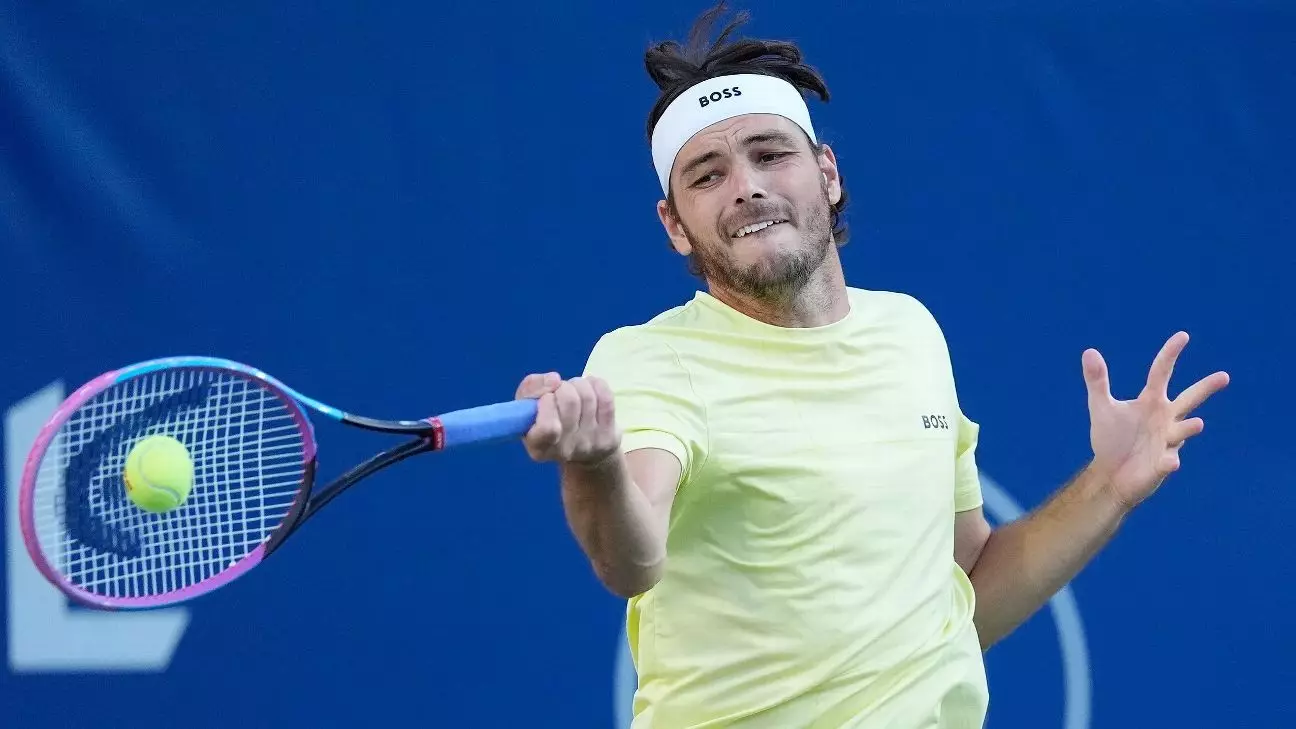The recent National Bank Open in Toronto provided a captivating showcase of talent, grit, and tenacity, highlighting the very essence of competitive spirit. While the headlines often focus on star players and their victories, beneath this surface lies a story of perseverance and mental fortitude. Taylor Fritz’s victory over the towering Canadian Gabriel Diallo isn’t just a match result; it epitomizes resilience in the face of expectations. Fritz, a seasoned player at age 27, demonstrated that experience and mental toughness can triumph over physical attributes, such as Diallo’s remarkable height advantage. This match underscores a deeper truth: inner strength often matters more than size or raw power.
The Power of Positivity and Crowd Dynamics
Fritz’s acknowledgment of the crowd’s supportive attitude offers an important lesson about community and mindset. His surprise at the welcoming atmosphere suggests that even in competitive sports, overhyped notions of hostility and rivalry can be challenged by genuine kindness. Such positive interactions cultivate an environment where athletes can perform at their best without the burden of hostility. It’s a reminder that sports are not solely about winning but also about creating connections and fostering respect, which fuels increased motivation. Fritz’s remark reflects a broader understanding that attitude and perception influence performance as much as physical skill.
Emerging Talent and Strategic Excellence
As the tournament progresses, new stars and seasoned veterans alike reveal the importance of strategic evolution. Jiri Lehecka’s comeback victory over Arthur Fils exemplifies resilience—losing the first set but bouncing back with tactical adjustments. His progression indicates that adaptability is perhaps the greatest asset in high-stakes competition. Similarly, Ben Shelton’s marathon victory over Brandon Nakashima underscores stamina and mental toughness, especially in tightly contested tiebreaks. These matches aren’t just about athletic ability; they embody grit, discipline, and the relentless pursuit of excellence.
The Absence of Top-Ranked Players and the Opportunity for Growth
The tournament’s landscape, notably missing the top-ranked Jannik Sinner and world number two Carlos Alcaraz, introduces a compelling dynamic. Their absence paves the way for emerging players to capitalize on opportunities. However, it also prompts a reflection on the importance of resilience amid adversity. The absence of these giants underscores that victory is attainable not only through innate talent but also through perseverance and mental readiness. Players like Frances Tiafoe and Andrey Rublev are seizing this moment to showcase their growth, reaffirming that setbacks—whether in the form of withdrawals or losses—are merely stepping stones toward mastery.
Final Reflection: The Human Spirit in Competitive Sports
This tournament transcends mere athletic competition; it’s an affirmation of human potential. Each match, each rally, and each comeback embodies a core truth: Success is driven by an unyielding desire to improve, adapt, and push beyond limitations. As we witness rising stars and seasoned professionals battling not only opponents but also their inner doubts, we are reminded that resilience, positivity, and strategic growth are what truly define champions. Toronto’s tennis scene offers a vivid blueprint for anyone striving to excel—champions aren’t those who never stumble, but those who refuse to stay down once they do.

